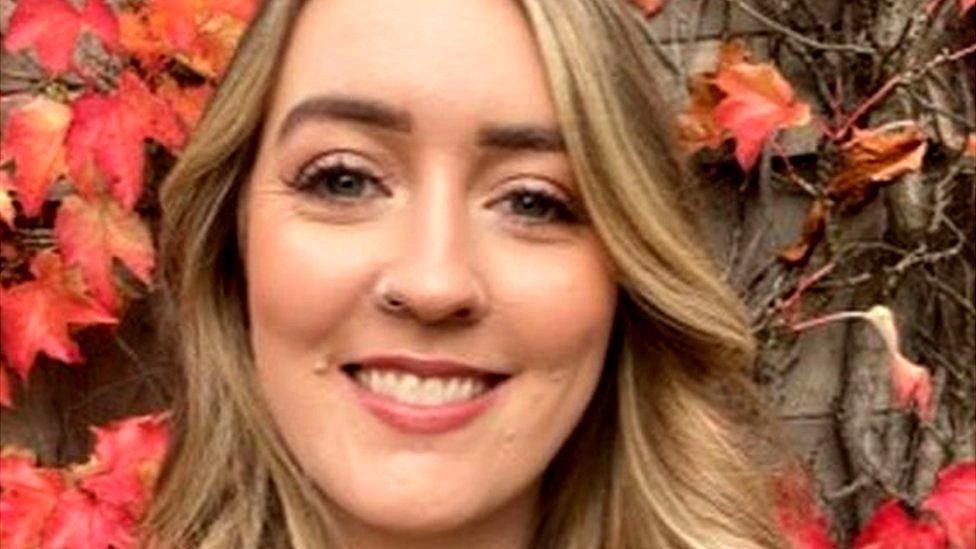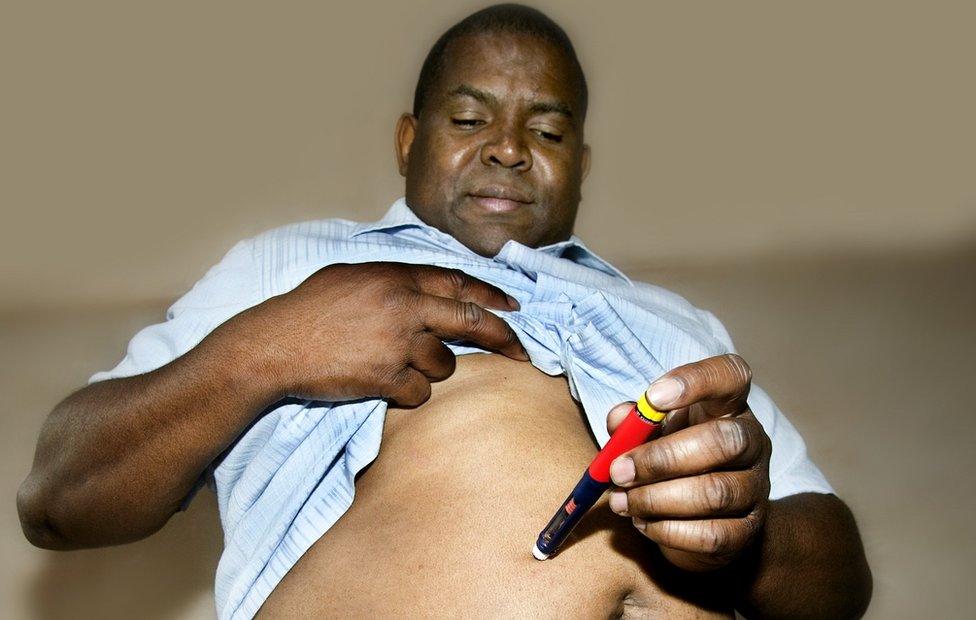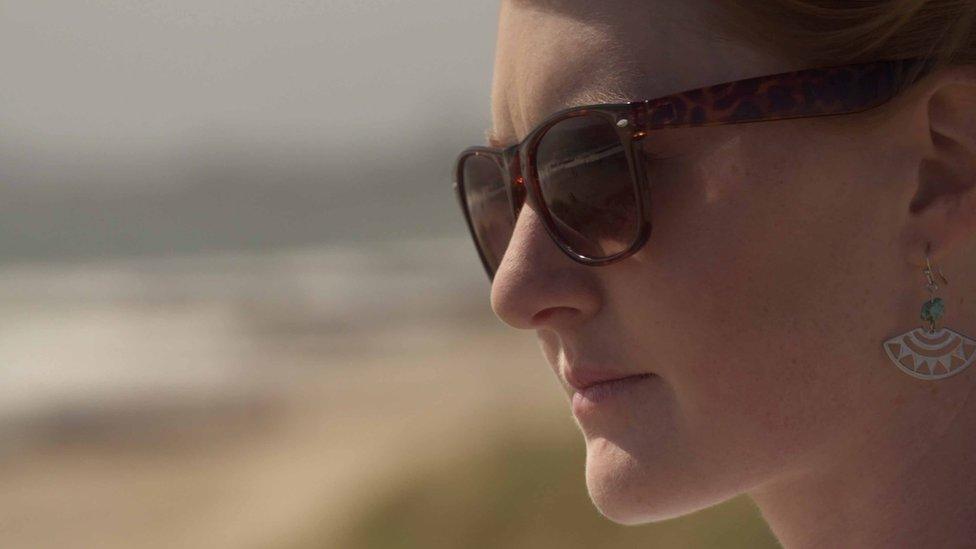Type 1 diabetes: 'People don't know how hard it is'
- Published

Emma Malcomson was diagnosed with type 1 diabetes when she was just six and says she wishes there was more understanding of the daily impact it has on people's lives.
"The biggest bugbear for people living with Type 1 is that it's such a misunderstood condition and I think a lot of people don't know how hard it is," she says.
The 26-year-old, who lives in Glasgow, says she does not remember what life was like before having diabetes.
"I was diagnosed when I was six and that was a really young age to have such a burden placed on my shoulders," she says.
Type 1 diabetes is a disorder in which the pancreas is unable to produce insulin. It is characterised by uncontrolled high blood glucose levels and it can be controlled by injecting insulin.
People with type 1 diabetes have to monitor their blood sugar levels throughout the day and Emma says she is always aware that a couple of bad days can quickly lead to health complications with possible long-term effects.
"I just wish that people knew the amount of effort that goes into staying alive on a daily basis," she says.
Physical activity
Levels of physical activity and diet affect the amount of insulin needed so Emma has to be constantly concerned about both at all times.
She says: ''It's the first thing I think about when I wake up. What's my blood sugar? How much insulin am I going to need with my breakfast? How many carbs on my breakfast?
"Am I going to be walking at work today? Am I going to have a coffee? Is that caffeine going to spike my blood sugar? Am I going to need more insulin for that?
"There's 101 decisions going through my head and different scenarios before I'm even out of bed and I think that a lot of people think type one diabetes is just watch what you eat and you'll be fine."

Type 1 diabetes is characterised by uncontrolled high blood glucose levels and can be controlled by injecting insulin
Emma, who is originally from Belfast, says she looks fine most of the time but often has bad days when she feels like she thinks "why did this happen to me?".
She says: "It can be quite isolating, especially just little things like whenever I'm out with my friends for a meal or drinks.
''It amazes me sometimes to think people can just sit down and start eating their dinner and not have to do mental maths and think about the impact the food they're eating will have on their blood sugars, on the body and how much sleep they're going to get that night."
Alcohol presents a whole different set of problems and she tries not to bring down her friends by discussing the challenges.
''I was in my early 20s before I even spoke to someone to say that, actually, this really sucks sometimes and it has an effect on my mental health," she says.
"I didn't realise how much I needed to speak to someone about it until I came out of a session and I could really feel the weight off my shoulders.''
'Just having a chat can do wonders'
Mental Health Foundation Scotland says young people, lone parents and those living with long-term health conditions are most likely to struggle with mental health as we emerge from the pandemic.
Emma is part of a peer support project run by Diabetes Scotland.
She says you can't put a price on being in a room of other people going through the same issues.
''Finding ways of sharing the burden that that has placed on your life will have a massive impact," she says.
"Sometimes I feel like you can almost talk yourself out of the mess that might be going on in your mind when you're verbally processing it and try and chat to someone else about it.
"Just having a chat sometimes, it's such a simple thing, but it can do wonders for your mental health."
- Published16 November 2020
